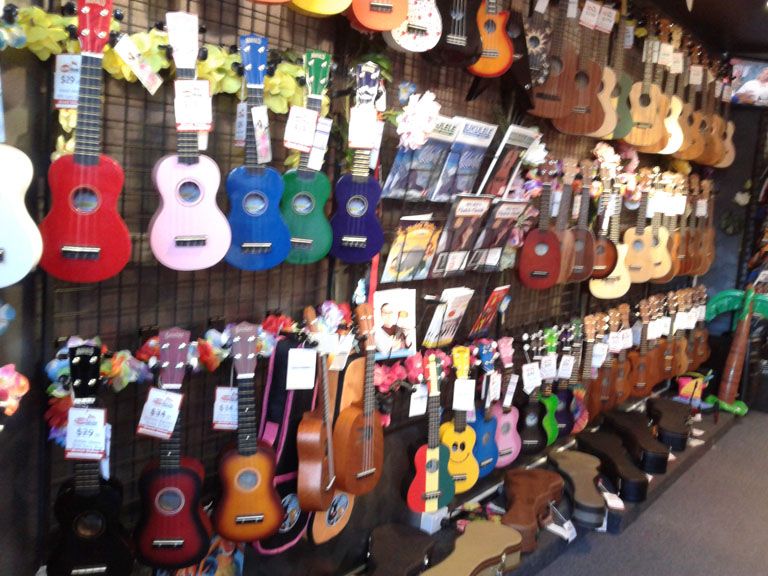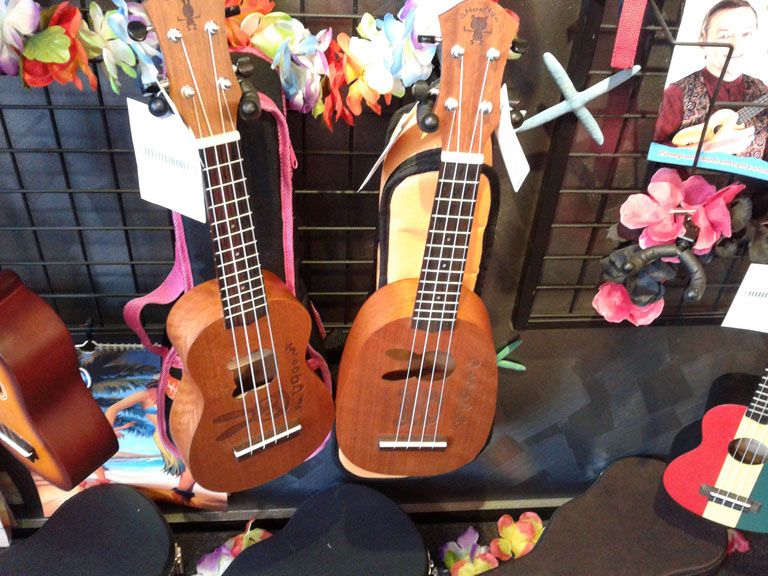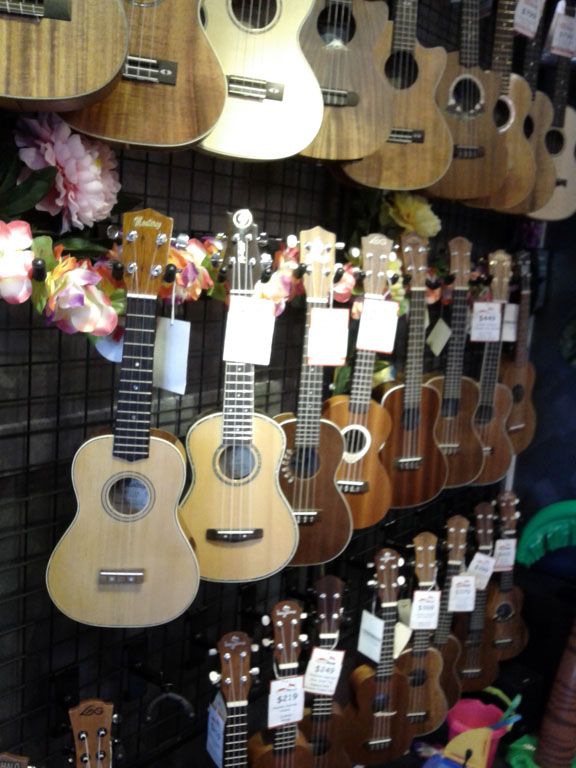kissing
Well-known member
- Joined
- Mar 30, 2009
- Messages
- 4,362
- Reaction score
- 592
When I first got into ukes, I was told that solid wood ukes are the best, and that laminates are cheap and sound dull.
After a while, I got into laminate ukes, because I found that they sounded quite good and were more durable against humidity.
Then I got into solid wood ukes again, because I somehow got convinced that they do sound better, and are thus better instruments..
Until I walked into a music store today, and had the following experience.
1. The store:

2. The winners:

3. The expensive wall of shame:

Basically, the Anuenue U900's with the bunny/bear soundholes outperformed every other uke in the store in my view.
They are packed with tone, volume and clarity that made the rest sound dull and lifeless.
This is including some high end all-solid ukes of all sizes, some costing $700+
Solid Koa, Acacia, Spruce, Mahogany.. they were all there... but still sounding duller than these pair of soprano laminates.
These Anuenue U900's are amazing
They even outperformed more expensive ukes made by the same company.
After a while, I got into laminate ukes, because I found that they sounded quite good and were more durable against humidity.
Then I got into solid wood ukes again, because I somehow got convinced that they do sound better, and are thus better instruments..
Until I walked into a music store today, and had the following experience.
1. The store:

2. The winners:

3. The expensive wall of shame:

Basically, the Anuenue U900's with the bunny/bear soundholes outperformed every other uke in the store in my view.
They are packed with tone, volume and clarity that made the rest sound dull and lifeless.
This is including some high end all-solid ukes of all sizes, some costing $700+
Solid Koa, Acacia, Spruce, Mahogany.. they were all there... but still sounding duller than these pair of soprano laminates.
These Anuenue U900's are amazing
They even outperformed more expensive ukes made by the same company.
Last edited:
